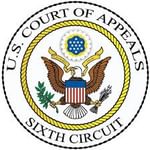
NEWS (6/17/21) — Ohio: A split panel of the U.S. Court of Appeals for the Sixth Circuit has granted a new trial to Ohio death-row prisoner August Cassano, holding that he had been tried in violation of his Sixth Amendment right to self-representation.
Prior to trial, saying that his appointed counsel that his counsel “rarely visited him, failed to provide him with updates on the case, and frequently lied to him,” Cassano filed a pro se motion to waive his right to counsel and a second motion to appoint substitute counsel. New counsel were appointed, but Cassano again raised the possibility of representing himself. The court responded: “you’re not going to represent yourself in this matter. If you wish to say a word on the record about that, you can. But thereafter you won’t be speaking in the courtroom. I’m in charge of the courtroom, not you. You will never be in charge of this courtroom.”
As jury selection was about to start, the only member of the defense team certified under Ohio rules as lead counsel for representing a capital defendant was still involved in another trial. Cassano again asked about self-representation and the court explained that “I think I’d be doing you a disservice by allowing that.” The court did not conduct a colloquy to determine whether Cassano was competent to waive counsel and whether the waive would be knowing, intelligent, and voluntary.
The majority opinion by Judge Eric L. Clay, joined by Judge Bernice Donald, held that the Ohio courts had never addressed Cassano’s self-representation claim and that the trial court’s refusal to allow him to represent himself violated the U.S. Supreme Court’s 1975 decision in Faretta v. California guaranteeing defendants the right to represent themselves. Judge Eugene Edward Siler, Jr. dissented, arguing that Cassano had never clearly and unambiguously waived his right to counsel. Judge Siler noted that Cassano’s motions to waive counsel and seeking appointment of substitute counsel were within one minute of each another, suggesting that while Cassano wanted appointed counsel off the case, he did not want to proceed without legal representation.

NEWS (6/17/21) — Florida: The Florida Supreme Court has upheld the ruling of a Palm Beach County trial judge that denied Jerry Haliburton’s claim that he ineligible for the death penalty because of intellectual disability.
The decision marks the second time that the trial court — which sentenced Haliburton to death despite the votes of three jurors to recommend a life sentence — denied Haliburton’s intellectual disability claim. In March 2012, the court dismissed his claim without a hearing, saying Haliburton had not presented any IQ test score of 70 or below. After the Florida Supreme Court upheld that ruling, the U.S. Supreme Court decided Hall v. Florida, holding that Florida’s reliance on an IQ threshold unconstitutionally disregarded established clinical practice in determining intellectual disability. In October 2014, the U.S. Supreme Court overturned the Florida courts’ rejection of Haliburton’s claim and returned the case for review using constitutionally appropriate criteria.
On remand, the trial court credited the testimony of the prosecution mental health expert over the defense expert and ruled that Haliburton had not met his burden of proving that he suffered from significantly subaverage intellectual functioning and deficits in adaptive functioning necessary to qualify as intellectually disabled. The Florida Supreme Court affirmed, finding that “competent, substantial evidence supports the trial court’s findings that Haliburton failed to establish that he has significantly subaverage intellectual functioning or concurrent deficits in adaptive behavior.”
Haliburton also challenged Florida’s requirement that he prove his intellectual disability by clear and convincing evidence. The court found it unnecessary to address that issue, saying he had failed to prove even by a preponderance of the evidence that he had intellectual disability.